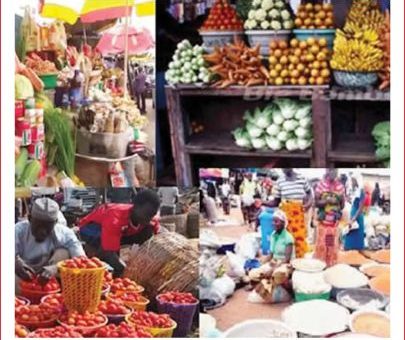According to an analysis of the ‘Selected Food Price Watch’, a report was published as Ebonyi and Abia states led in the rise of the prices of food which increased by 31 per cent.
This report published on a monthly basis by the Bureau of Statistics shows how the prices parachuted within 12 months from July 2022 to July 2023.
The selected food items include staples such as garri(1kg), wheat (2kg), rice(1kg), beans(1kg), bread (500g), palm oil (1 bottle) tomatoes, and beef.
Corresponding to the reports, the highest food price increase was recorded in the price of yam, which jumped by 42 per cent, from N389.75 in July 2022 to N539.41 in 2023.
Also, the price of one kilogram of rice was not that much of a difference from it as it increased from N467.80 to N653.49 within 12 months.
Similarly, the price of palm oil went up by 35 per cent, from N890.67 to N1208.62 during the period in review.
Other staple foods which contributed to the food price hike included 500g of sliced bread which increased by 34 per cent from N486.27 to N651.78, Garri (1kg), which increased by 33 per cent, from N323.17 to N429.89.
Beef, which increased from N211.84 to N2758.13, a kilogram of tomato from N446.81 to N557.96, and 2kg of Wheat (N1094.72 to N1419.14), and so many other staple food items which recorded significant price spikes.
Further analysis showed that, unlike the South-Eastern states (Ebonyi and Abia) which recorded a large increments in food prices, states within the North Central (Kogi, Niger, Benue) recorded the lowest food prices during this twelve-month period.
The NBS had stated in it’s latest Consumer Price Index, that food inflation rate in August, which was 29.34 per cent, was the primary influence which pushed headline inflation from 24.08 in July to 25.80 in August.
“The rise in food inflation on a year-on-year basis was caused by increases in prices of oil and fat, bread and cereals, fish, fruit, meat, vegetables and potatoes, yam and other tubers, vegetable, milk, cheese and eggs,” the NBS said.



